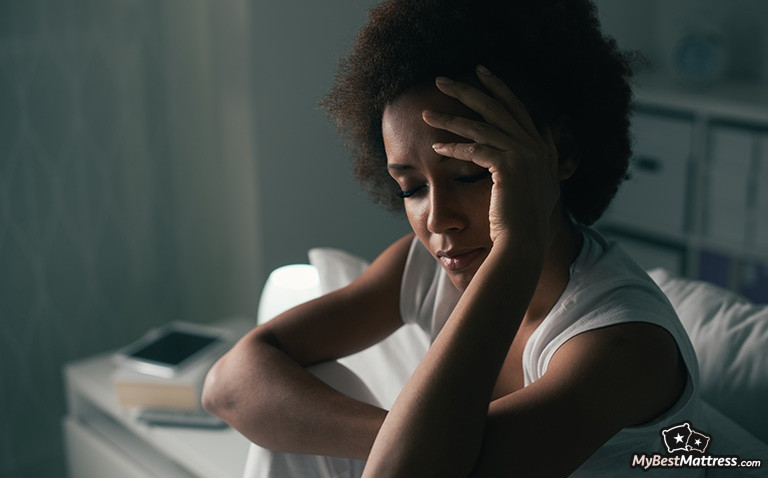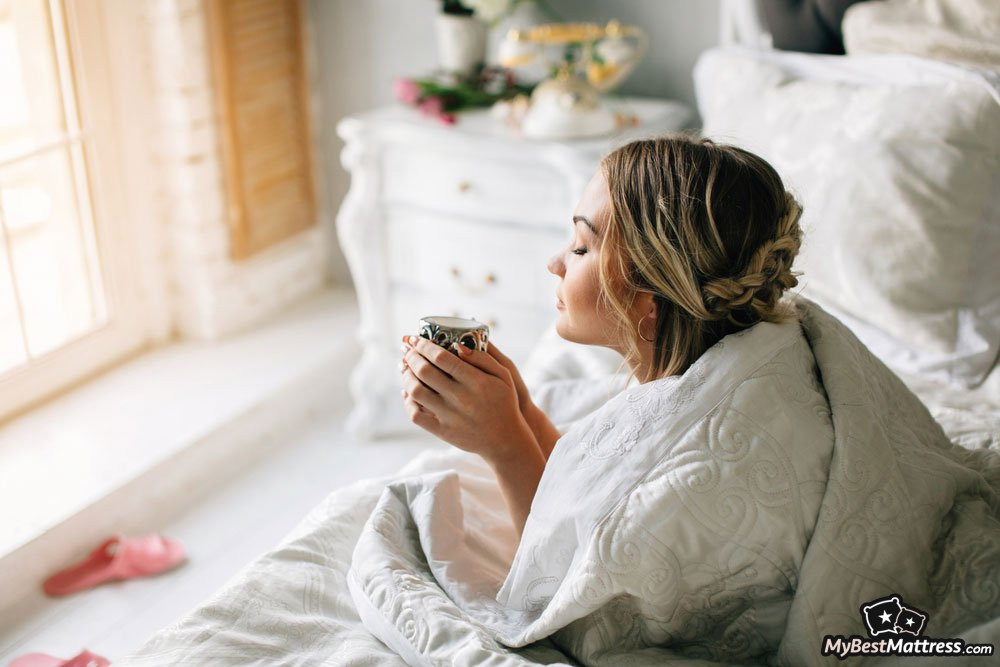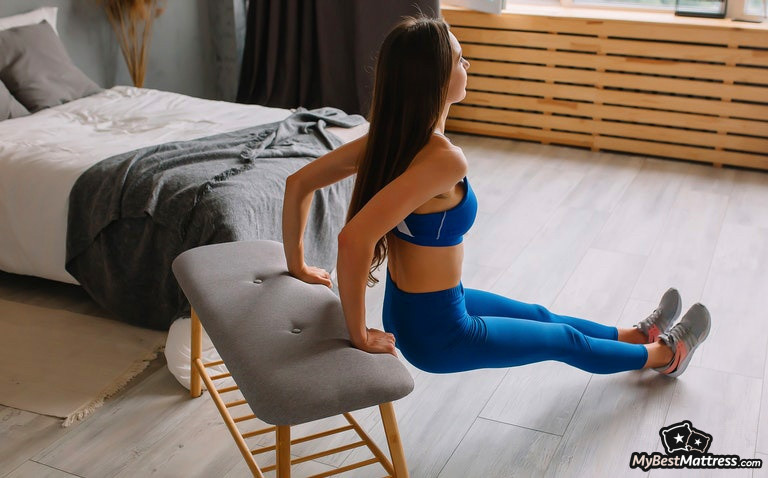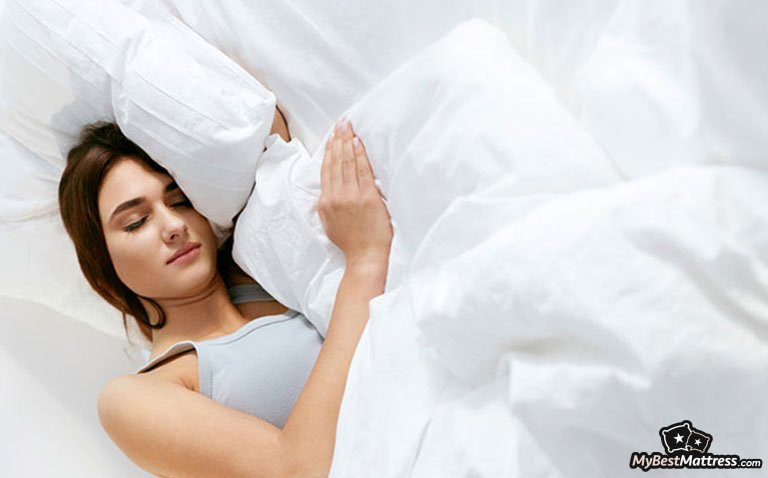
We think of sleep as a way to rest our mind and body after the day of hard work. While the majority of us prefer sleeping only once per 24 hours (during the night) there are people who are trying different sleeping techniques to be more productive and focus on daily tasks easier.
A few of those techniques are polyphasic and diphasic sleep. However, while many researchers argue whether or not it’s better than the traditional sleeping method, the main questions still remain:
Is polyphasic sleep healthy?
Is polyphasic sleep safe?
What’s the polyphasic sleep schedule?
To make all the aspects clear, in this article I will introduce you to the polyphasic sleep, whether or not it’s safe based on biological factors, and how it can influence your health.
What should be done every day to ensure good sleeping patterns?
Sleep hygiene is key to optimize your sleep. That means going to bed at the same time and waking up at the same time every day. Wide variations in sleep hours can throw off your circadian rhythms and cause sleep disturbance when you do manage to go to bed. Part of sleep hygiene means making it easy to fall asleep too! Avoid caffeine after 5, exercise daily but at least a couple hours before bedtime, and turn screens off (cellphones, tablets, laptops, etc.) an hour before bed. Wind down gently, with calming activities such as meditation, listening to soothing music, or taking a warm bath.
Table of Contents
What is Polyphasic Sleep?
Polyphasic sleep refers to sleeping multiple times during the day - more than two. It’s different from both monophasic and diphasic sleepers who tend to sleep either one or two times during a period of 24 hours.
Polyphasic sleep is also often called segmented or divided sleep (biphasic sleep is also called this way) and could mean interrupted sleep when you experience one or more periods of wakefulness during your sleep.
The term polyphasic might not be familiar to everyone, however, you definitely know what nap is. So, you can imagine taking multiple naps during the day, which is one of the polyphasic sleep methods.

The term “polyphasic sleep” was used in the early 20th century for the first time by the psychologist J. S. Szymanski[1]. While some of you are willing to try a polyphasic sleep schedule, you should know that it’s widely associated with circadian rhythm disorder which causes insomnia, excessive daytime sleepiness, and other sleep-related issues.
Monophasic vs. Polyphasic Sleep Schedule
Monophasic sleep is “normal” sleep if I could say so. It’s sleeping one time per day, only during the night, which is something that the majority of us are used to. However, even though it’s something that we’re used to, it wasn’t always this way.
As far as it’s known, a monophasic sleep schedule is widely related to the industrial revolution and the electricity. Some studies revealed that our ancestors slept only 3-5 hours per session, then used to wake up, perform some light activities and get back to sleep for the next 3-5 hours.
While such a polyphasic sleep method doesn’t seem logical at first, it’s actually pretty simple to understand. Before the electricity, our ancestors strongly depended on the natural light. So, when the darkness lasted about 12 hours, it was quite difficult to sleep without interruption.
That’s why they split those 12 hours in half or even more segments and woke up every few hours to have a break and then got back to sleep again. Quite simple, right?
Now minority of us choose biphasic or polyphasic sleeping due to our lifestyle. Since we’re always in a rush, there’s no way we could find time for multiple naps during the day. Of course, it might work for freelancers and those who have a flexible work schedule.

Thus, you should understand the difference between the monophasic and polyphasic sleep, however, the main questions still remain: is polyphasic sleep healthy? Is polyphasic sleep safe? That’s what I’m about to discuss in the further section.
Polyphasic Sleep and Health
To understand whether or not the polyphasic sleep is good for you, we should take a look into your sleep rhythm and discuss the production melatonin. Both of these aspects are widely related to your sleep schedule.
24-hour sleep-wake rhythm makes sure that we’re awake and focused during the day, and sleepy during the night. Melatonin - the sleep hormone, plays a major function here. When the evening comes and it gets dark, the production of melatonin increases and makes us sleepy. On the contrary, in the morning, with the first sun rays, the melatonin production decreases and we wake up. We should be ready to begin our day at 9 a.m.
As you can see, the melatonin and the sleep-wake cycle[2] are widely related, however, it’s important to understand that each of our sleep drives is different, and while some of us can sleep 10-12 hours without interruptions, others cannot stay asleep for 5-6 hours.

Polyphasic sleep is often associated with circadian rhythm disorders such as insomnia, excessive daytime sleepiness, and other related problems. That’s because people who cannot sleep or stay asleep, usually experience disruptions in their sleeping cycles.
What is more, when you take naps during the day, it can be difficult to fall asleep at night, consequently, it can also disrupt your sleeping cycle and cause insomnia.
On the other hand, Dr. Claudio Stampi, a person who dedicated his whole life to understand ultradian rhythms and the art of napping, showed that polyphasic sleep can have a positive impact on your health, including:
- Better performance
- More focused and alert
The studies were primarily performed to find a way to minimize sleep deprivation. If you have no problems experiencing a quality nighttime sleep, then Stampi doesn’t recommend polyphasic sleeping.
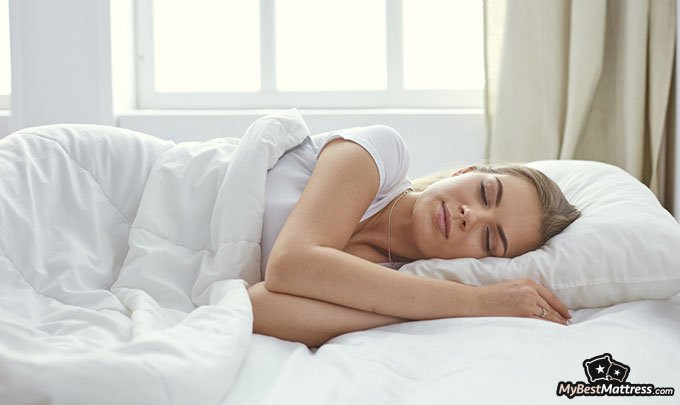
On the other hand, Stampi himself is a biphasic sleeper and claims that he is never tired. However, it’s obvious that biphasic sleep is different from polyphasic sleeping, it’s way more common and less extreme.
All things considered, we’re all different and while some of you might find polyphasic sleep beneficial, others could go only a few days sleeping like this. I guess you can never know until you try, however, I wouldn’t recommend doing this, especially if you do not experience difficulty to fall asleep.
Polyphasic Sleep Schedule
There are certain things to understand about the polyphasic sleeping schedule. Even though I would never recommend it, you should understand that it’s not about sleeping whenever you want. In order for this to work as intended, you should keep a strict sleeping regime.
Let me introduce you to the best-known combinations of polyphasic sleep patterns:
- Everyman - sleeping about 3 hours during the night and take three naps that last about 20 minutes during the day.
- Uberman - sleep only 3 hours per day, take six naps that each last 30 minutes.
- Dymaxion - sleep only 2 hours per day by taking a 30-minute nap every six hours.
As you can see, polyphasic sleepers usually stick to the strict sleeping schedule, however, sleeping 3 hours per day is not always the right choice. At least that wouldn’t be enough for me.
People Who Practiced Polyphasic Sleep
For your interest, let’s take a look at the sleeping schedules of well-known people.

If you were doing your research on polyphasic sleep, ou may have come across the fact that Leonardo da Vinci practiced this method. While many argue believing that it’s only an urban myth due to the lack of credible sources, others actually believe that it’s true.
Leonardo da Vinci practiced what looks most similar to the Uberman sleep pattern - he took a 20-minute nap every four hours. What is more, he was so focused on the work that he used to forget to drink and eat. No wonder this method worked for da Vinci.
Napoleon - military commander is also one of the legends who used to practice polyphasic sleep. However, not by choice. As far as it’s known, even though such records are easy to falsify throughout history, Napoleon was suffering from insomnia due to the great stress. Consequently, he took frequent daily naps to get more energy and always be prepared.
Winston Churchill’s sleeping habits are also quite interesting. He used to stay up late every night and always wake up at 8 a.m. to go through his regular morning routine - reading papers, dictating letters, and so on. After that, during the tea time, he used to take a 1-2 hour nap and then work until 3 a.m. If counting the total sleep time, he averagely slept 5-6 hours per day. As you probably understand, Winston Churchill was a classical biphasic sleeper.
Therefore, as you can see, even well-known people were polyphasic sleepers, however, what’s important to understand is that not all of them did this by choice - as I already said, polyphasic sleep is widely connected to sleeping disorders.
Tips for Better Sleep
Before trying such sleeping techniques as polyphasic sleep, you should try way simpler and safe methods to improve the quality of your sleep. Here are the tips that work for the majority of people.

- Turn off all the light sources. You should make sure to turn off all your electronic devices at least 30 minutes before going to sleep. It has a lot to do with melatonin - the sleep hormone. When it gets dark, the production of melatonin increases and prepares you for the nighttime sleep. However, when you look into the bright screen before going to sleep, your body perceives it as daylight and the production of melatonin decreases.
- Relaxing activities before bed. If you’re experiencing stress and anxiety daily, then you could use some relaxing activities such as meditation, yoga, reading a book, listening to relaxing music, and so on. The only thing you should avoid is stimulating activities right before going to sleep. This way, you’ll allow yourself to relax and sleep better.
- Healthy lifestyle. Eating healthy foods, minimizing the intake of alcohol and tobacco is proven to make a major impact on your sleep. Thus, to improve the quality of your sleep and your health, in general, you should try to stay healthy.
- Exercising regularly. When exercising regularly, you will relieve stress and anxiety, and, will discharge yourself physically. Needless to say, it will allow you to fall asleep faster and sleep so much better.
- Get a comfortable mattress. While it might seem quite obvious, it might be time to change your old mattress and get a truly comfortable bed that will allow you to rest so much better. There are many different mattress types and designs. Those of you who love cushioning and conforming mattress should consider memory foam mattress, sleepers who are looking for a more bouncy alternative should take a look into innerspring and hybrid mattresses. And if you’re looking for a nature-friendly alternative, then latex mattress will be just the right pick.
- Try essential oils for sleep. Essential oils not only create a pleasant home environment, but they can also help you to fall asleep. For centuries people have been using essential oils such as valerian, chamomile, and lavender to promote sleep. Now it’s known that such oils can help not only to fall asleep but also improve the quality of your sleep. The most popular method is to use it together with an essential oil diffuser. So, give it a try.

Thus, before trying all the risky techniques such as polyphasic sleep, you should try the alternative tips that are known to actually be working.
Conclusions
As promised in the very beginning, I’ve introduced you to polyphasic sleep, which refers to the sleep pattern when taking multiple sleep sessions/naps during the 24-hour timeframe.
The main questions that I’ve covered included: “Is polyphasic sleep healthy?” Is polyphasic sleep safe?”. As you already know, some studies revealed the positive impact that this sleep technique has on our memory and ability to concentrate.
On the other hand, the polyphasic sleep schedule can lead to sleep deprivation, insomnia, and other sleep disorders. The reason for that is the lack of sleep and the disruption of your sleep cycle due to unnatural rest schedule.

If you have no problems falling asleep, then there’s no reason to try this sleeping method - it doesn’t work for everyone. Instead, try some tips that actually work, including relaxing activities before going to sleep, a healthier lifestyle, daily exercises, turning off all devices before going to sleep, essential oils to relax and, of course, getting a comfortable mattress based on your wants and needs.
If you’re not sure which bed to pick, then you can find more information that will help you decide here.
Contributed By Patricia Celan, MD, Psychiatry Resident
Patricia is a post-graduate trainee in psychiatry, working in diagnosing and treating patients with psychiatric conditions. She is passionate about psychotherapy, especially in trauma, anxiety, and...
Read Full Bio...Scientific References
Contributed by Patricia Celan, MD, Psychiatry Resident1. Hartmut Schulz, and Piero Salzarulo: 'The Development of Sleep Medicine: A Historical Sketch'
2. Nava Zisapel: 'New perspectives on the role of melatonin in human sleep, circadian rhythms and their regulation'
Leave your honest feedback
Leave your genuine opinion & help thousands of people to choose the best mattress. All feedback, either positive or negative, are accepted as long as they’re honest. We do not publish biased feedback or spam. So if you want to share your experience, opinion or give advice - the scene is yours!




